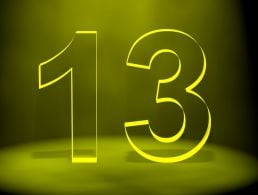Dr Anya Rumyantseva, data scientist at Hitachi Vantara, discusses her experiences as a woman in the world of tech.
From studying physics to going on sub-polar ocean expeditions researching phytoplankton, Dr Anya Rumyantseva has already done plenty of different things in her career. But among those pursuits, some of her toughest challenges have been in navigating the world of tech as a woman, as she tells us here.
‘It can be a challenging environment, particularly for women, so be resilient, work hard and don’t be deterred’
– DR ANYA RUMYANTSEVA
What is your current role and what does it involve?
I’m a data scientist in Hitachi Vantara’s solution-engineering team. My job is pretty exciting, no two days are ever the same. I work with companies to help them get the most out of their data. That means understanding their business challenges and prototyping solutions using advanced analytics, machine learning and deep learning techniques.
One day I could be working with a train operator finding new ways to combat delays, and the next I could be helping a ferry service to reduce their carbon footprint. We work with companies across many different industries, from healthcare to manufacturing. That’s something I find very rewarding about my job – I get to transform data into solutions that have a tangible real-world impact.
Did you always want to work in data science?
While I wouldn’t say I’ve always wanted to be a data scientist, ever since childhood I’ve been passionate about mathematics, research and analysis. So, data science was obviously a very attractive career option for me. But I didn’t take the most direct path into the field. I actually studied physics and then went on to get a PhD in ocean and earth science.
Before joining Hitachi, I worked in oceanography, going out on expeditions into the middle of the ocean to collect data and conduct research into phytoplankton dynamics of the sub-polar north Atlantic Ocean. It may sound left field but actually it isn’t a world apart from the work I’m doing today.

Image: Dr Anya Rumyantseva
Have you faced any particular challenges as a woman in technology?
Let me tell you a quick story. When I was at school, I was really interested in programming. So much so that I took part in a programming competition, even making it into the top 10 amongst other kids in my hometown. But here’s the thing: I was the only girl in the competition. I mention that anecdote now because sometimes that’s what it can feel like being a woman working in the technology industry, too.
Before joining Hitachi, I had the experience many other women have in the industry of joining an all-male team. And while I enjoyed working with some incredibly smart people, in a setting like that you can feel like you’re under extra scrutiny. You’re conscious of being the odd one out, which can feel like constantly being under a spotlight, especially when you’re a young woman and conscious that people may not take you seriously because you look inexperienced.
But I do feel very fortunate in my current role at Hitachi, where there’s a very good gender split within the team. Now I feel like I can just focus on just doing what I do best, rather than on my gender.
How did you overcome those challenges?
Being resilient. Just focusing on myself, achieving my goals, getting enjoyment out of the work that I’m doing and seizing every opportunity that comes along.
What do you think is the most important obstacle to overcome in order to achieve gender equality in the world of tech?
Most of the jobs in tech are still very gendered. We tend to associate certain professions as being masculine in the same way we label so-called ‘pink-collar’ jobs as more feminine. We need to undo the stereotypes so that women don’t feel like outsiders in a ‘tech bro’ culture. That only starts to happen when men in leadership roles stop hiring people who mirror themselves, and we overcome this birds-of-a-feather mentality.
The technology industry is all about innovation and the best ideas happen when there’s diversity of thought. So, there’s certainly incentive for companies to hold the door open to people from every walk of life, at every level.
And once women have their foot in the door, organisations must ensure that they’re creating an environment in which they can thrive, excel and progress. Technology is a hugely competitive industry and because it has been male-dominated for so long, a major cultural shift needs to happen.
Men and women are equal, but they’re also different. We work differently and we talk about ourselves differently. I think many women are very humble and we’re often uncomfortable celebrating our own achievements in the way some men are.
Leaders need to listen to female employees, recognise their good work even if they’re not shouting about it, and ensure women have equal opportunities to progress in their careers.
Have you come across gender inequality in the field of data science in particular?
No, there are other jobs in the sector that have far worse diversity ratios than data science – IT managers, software developers, database engineers, just to list a few. In fact, I would say data science is doing well on the gender equality front.
Like myself, many people who end up in data science come from a variety of academic backgrounds, having studied other STEM subjects. It’s also a multidisciplinary field that demands a host of different skillsets – programming, data analysis, machine learning, mathematics and sometimes even data journalism. So, I think it naturally tends to attract a diverse group of people.
Do you have any advice for other women hoping to pursue a career in tech?
Go for it – the industry needs you. Technology is the future and women must have a seat at the table. It’s an incredibly vibrant and exciting space to work in, with many different roles to choose from that often offer competitive salaries and good job stability.
But at the moment, it can be a challenging environment, particularly for women, so be resilient, work hard and don’t be deterred.
Are there any resources for women in tech or data science you recommend?
I find reading books written by other successful women in the industry truly inspiring, such as Danielle Newnham, Susan Wojcicki or Meg Whitman, to name a few. They share great practical advice, based on their own experiences, for tackling some of those challenges I’ve already discussed, such as pushing for promotions and overcoming stigmas and stereotypes.
I would also strongly recommend Invisible Women: Exposing Data Bias in a World Designed for Men by Caroline Criado Perez. For me, it really hammers home why tackling the technology industry’s diversity problem is absolutely critical. Looking at data, Criado Perez paints a troubling picture of a world that currently isn’t built for women, revealing, for example, that 71pc of women have to wear protective clothing at work that isn’t designed for female anatomy.
And in the future, with data and algorithms increasingly shaping every facet of modern life, if women aren’t involved in the creation process, we’ll continue to be excluded.




